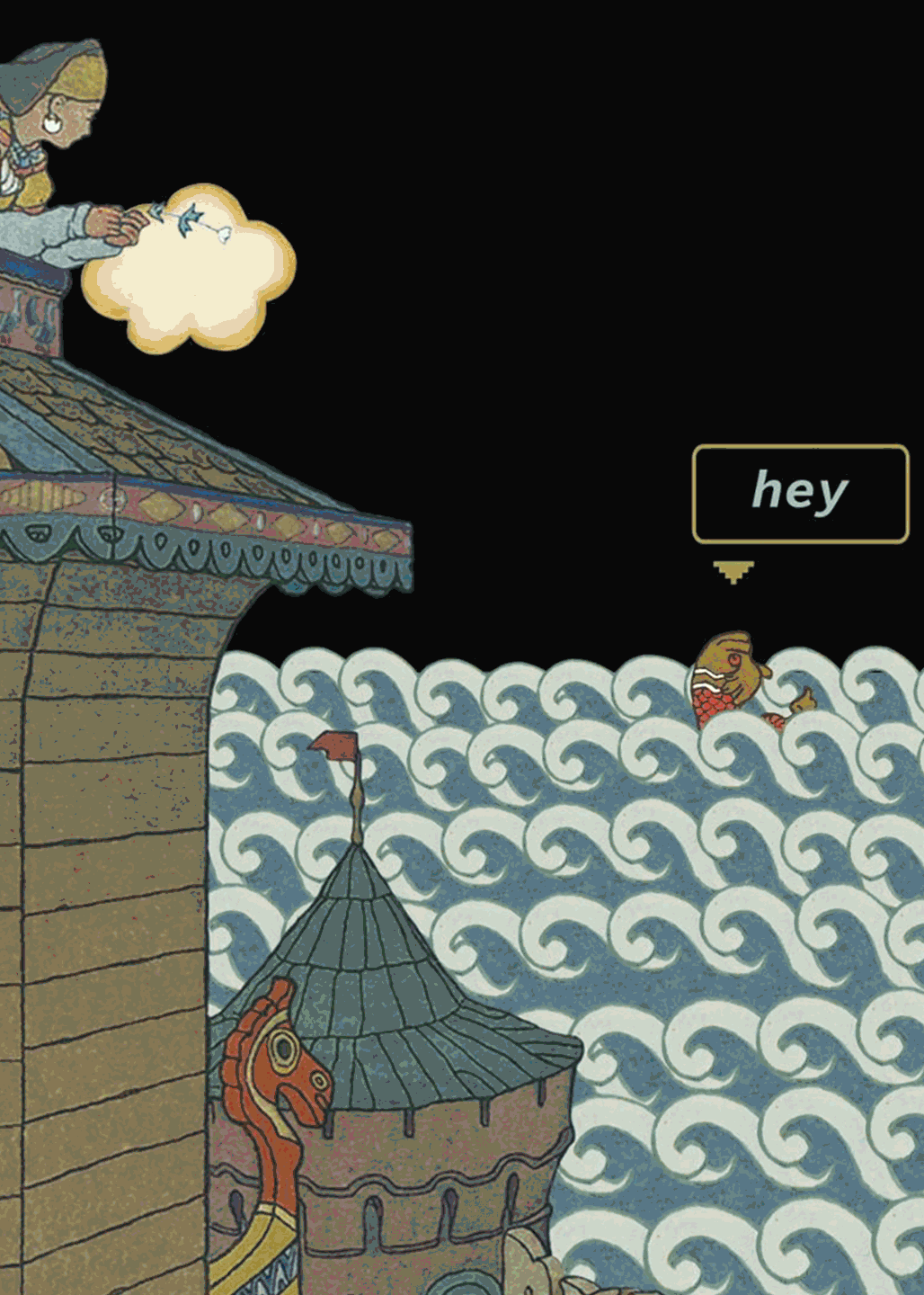Fragments for a Geopoetics of North Eurasia
Sergio Zevallos: Exercises in Transformation
October 21, 2023–January 14, 2024
John-Foster-Dulles-Allee 10
10557 Berlin
Germany
T +49 30 397870
F +49 30 3948679
info@hkw.de
Haus der Kulturen der Welt (HKW) launches the opening of two exhibitions with performances, conversations and a concert starting on the 20th of October.
As Though We Hid the Sun in a Sea of Stories—Fragments for a Geopoetics of North Eurasia
Exhibition, publication
October 21—January 14, 2024
This exhibition and research project foregrounds an ever-incomplete weaving of narratives of artists, curators, writers, and customary knowledge holders. It traces the many worlds that have existed in parallel, often in spite of or against the oppressive visions imagined by successive regimes—the Russian Empire, the USSR, and contemporary Russia—that have controlled areas across Eastern Europe and Central and North Asia.
Seemingly eccentric in relation to the exhibition’s geographies, the title is enkindled by “The Blesséd Word: A Prologue on Kashmir”, a poem written by the Kashmiri poet Agha Shahid Ali in 1990 and dedicated to his violence-ridden country. Conveying the grief of a homeland being destroyed, Ali likens his own fate with that of poet Osip Mandelstam, who was repressed and sent into internal exile by Stalin’s regime and subsequently perished in a Siberian camp. Featuring a line by Mandelstam as one of its epigraphs, Ali’s poem strived to articulate the tragedy of his people and yearnings for a lost homeland; in so doing, he invokes another loss in another time and country.
Ali chants his country, conjuring its name in eighteen different phonetic and graphic variants (the French cauchemar or nightmare, also included in this enumeration). This rhyming of times and spaces, a grafting of verses from Ali’s and Mandelstam’s poems, and the polyphony of meanings, is the sign under which the exhibition marks a site for itself with its title—particularly during these times of renewed Russian imperialist aggression, which started with the invasion of Ukraine in 2014 and continues today in a brutal war.
Naming is often a form of abuse. Whether “post-soviet”, which persists as the descriptor of a specific moment of the past, or Eurasia, as imagined by contemporary Russian far-right political thinking (which has captured the state), terms force meaning onto places. The “North Eurasia” in the exhibition’s subtitle is not meant to be an alternative label nor imagines for itself a future, but is rather a designation of geography that strives to be as neutral as much as geography can ever be, one that relies on the absence of labels past and of the empire itself. In this void, the richness of life that has been repressed, of communities that have survived against the odds, could rather imagine a future that is free to be full and plenty of meaning.
As Though We Hid the Sun in a Sea of Stories presents a non-totalizing vision by way of summoning multiple forms of subjectivities, imaginations, and sensualities that were dimmed by colonization and later fell out of the modernist canon, as well as by showcasing contemporary works that accentuate perseverance, resistance, and joy and explore connectedness beyond forcefully bounded pasts—many of them informed but not subjugated by this very canon. It invites processes of collective memory, the revival of cosmologies and vanished knowledges, the consideration of networks of those who defy imperially drawn borders, as well as forms of collective resistance and imagination of futures that can be lived, survived, and rejoiced in.
With contributions by: Chingiz Aidarov, Auseklis Baušķenieks, Akhmat Biikanov, Lidiya Blinova, Pavel Brăila, Aslan Ġoisum, Enno Hallek, Saodat Ismailova, Nikolay Karabinovych, Anton Kats, Meiro Koizumi, Galina Konopatskaya, Xenia Kudrina, Zoia Lebedeva, Jazgul Madazimova, Ilmar Malin, Almagul Menlibayeva, Yäniyä Mikhalina, Pavel Mikushev, Małgorzata Mirga-Tas, Nazilya Nagimova, Furqat Palvan-Zade, Natalia Papaeva, Sergey Parajanov, Kaljo Põllu, Valentina Rusu Ciobanu, Jaanus Samma, Afrah Shafiq, Tatnuu, Andro Wekua, Hanna Zubkova.
The project was funded by the Haupstadtkulturfonds and conceived in collaboration with the artists, curators, and writers Iaroslav Volovod, Nikolay Karabinovych, Saodat Ismailova, and Kimberly St. Julian-Varnon.
Sergio Zevallos—Exercises in Transformation
Exhibition, archive, performances, publication
October 21—January 14, 2024
Sergio Zevallos works on issues of transcultural identity, gender and the relationship between the individual and power, or between intimacy and the codes of institutionality. Zevallos was co-founder of Grupo Chaclacayo, an art collective of the 1980s that dealt with the intersection of religion, gender, and armed conflicts in Lima, Peru, together with the German artist Helmut Psotta (1937, Bottrop–2012, Wesel), and the Peruvian artist Raúl Avellaneda (1960, Lima). In 1989 the group migrated to Germany and held the travelling exhibition Todesbilder through East and West Germany. In 1994, the group was dissolved. Zevallos has shown his work in institutions such as the Künstlerhaus Bethanien, Berlin; Württembergischer Kunstverein, Stuttgart; MAC, MALI and Centro Cultural de España, Lima; Reina Sofía, Madrid; MACBA, Barcelona; and Museo Universitario de Arte Contemporáneo MUAC, Mexico DF, among others. Zevallos has participated in the 31st Sao Paulo Biennial, 2014 and in documenta14, Kassel and Athens, in 2017.
The exhibition focuses on the importance of practices that connect body and society, foregrounding Zevallos’s long-term commitment to always engage with political contexts, confronting the violence of sexist, misogynist, homophobic, racist, and bellicose societies. The exhibition opens with a series of newly commissioned artworks by Zevallos based on the artists’ family archive of the magazine Sociedad y Política (Society and Politics), which was started and edited by decolonial thinker Anibal Quijano in Peru (1972–1983) and co-edited by the artist’s father Abraham Zevallos. Continuing to rework images and texts in public circulation, and by engaging the body and society, the intimate and the public, Zevallos has re-opened the family archive, delving into the thirteen issues of Sociedad y Política. The magazine featured articles that radically critiqued the structures of capitalism, colonialism, and imperialism, analysing the crisis of modern power as the combined crises of capitalism, patriarchy, ecology, and eurocentrism. By doing so, the magazine entered into Cold War debates, looking from the South to the East at the experiences of socialism in Cuba, Chile, Guinea Bissau, Eastern Europe, or China. Within a retrospective selection of Zevallos’s earlier work, the exhibition acknowledges the artist’s trajectory through the various artistic experiments carried out through gesture, voice, language, and bodily behaviour, including a social space to engage with the Archivo Ambulante (Wandering Archive), part of Zevallos’s underground performative work with the collective Grupo Chaclacayo in Lima and in Berlin (1982–1994).
For more information on the opening program, visit: hkw.de/en
Haus der Kulturen der Welt is supported by the Federal Government Commissioner for Culture and the Media and by the Federal Foreign Office.
Contact: presse [at] hkw.de

